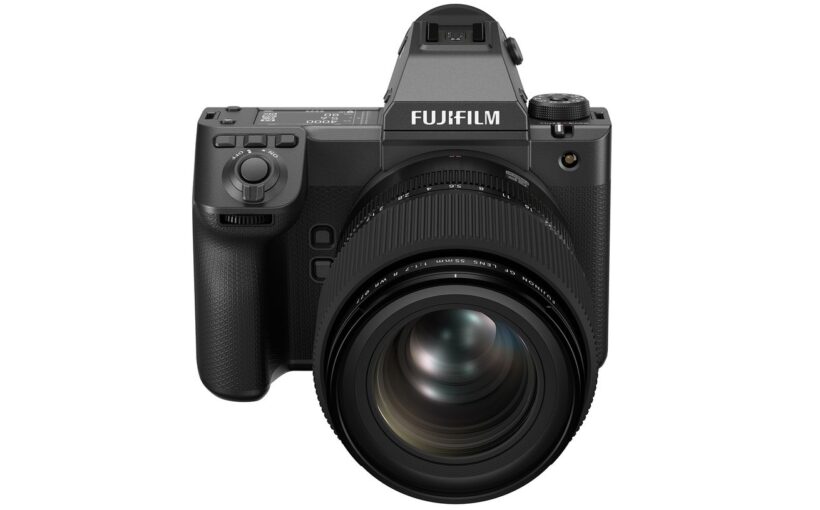
Camera and lens prices keep going up, but somehow, Fujifilm’s latest medium format mirrorless flagship includes a bunch of new features but costs significantly less than its predecessor. Fujifilm has announced its new GFX100 II camera at its X Summit livestream from Stockholm, Sweden, and in addition to a new sensor, new subject-detecting autofocus, and full-width 4K video, the new camera will have a price of $7,499 when it comes out in the fall, about $2,500 less than the GFX100.
Couple that with a new $2,299 55mm f/1.7 R WR lens (equivalent to a 44mm in full frame) and a pair of tilt-shift 30mm and 110mm lenses ($3,999 and $3,499, respectively) also launching in the fall, and the somewhat dormant GFX line suddenly looks to have some life in it.
:format(webp)/cdn.vox-cdn.com/uploads/chorus_asset/file/24913821/600023590_PT07_Image_GFX100iitop.jpg)
:format(webp)/cdn.vox-cdn.com/uploads/chorus_asset/file/24913822/600023590_PT08_Image_GFX10ii_backBottomNANAME_battery.jpg)
At first glance, the GFX100 II looks more like its lower-cost GFX100S cousin than the original GFX100 it’s poised to replace. The 100 II has a shorter, more standard-size body that’s smaller and lighter than its tall-boy forebear. The vertical grip is now an optional add-on, but what the new camera loses in stature, it tries to make up for in specs. The GFX100 II’s 43.8 x 32.9mm sensor, which has 1.7x more surface area than the 35mm full frame, maintains the same 102-megapixel resolution, but its ISO range now hits a lower floor with a range of 80 to 12,800 (rather than its predecessor’s 100 to 12,800 range), and its full-width 4K recording can now do 60 frames per second, twice its previous frame rate.
102-megapixel stills and 8K video
Also in the speed department, the GFX100 II borrows the fifth-generation X-Processor from Fujifilm’s X-H2S and X-H2 cameras. Along with the processor comes subject-detection autofocus and the ability to record 4:2:2 10-bit Apple ProRes to its dual SDXC or CFexpress Type-B memory cards.
In addition, the GFX100 II’s new tricks include allowing that same subject tracking to be used in video, and the camera can achieve 8K / 30p recording when cropped to 1.44x — which will be the true pixel-to-pixel 8K resolution on its medium format sensor. There’s no telling just yet how the camera’s combination of a smaller body and 8K recording will be able to handle overheating; Fujifilm has made its existing add-on cooling fan compatible with the GFX100 II to try and assist.
:format(webp)/cdn.vox-cdn.com/uploads/chorus_asset/file/24913828/600023590_PT10_Image_GFX100ii_leftNanameUP_EVF_TL1_H00V45.jpg)
While all that’s great for video, photographers may appreciate that the GFX100 II has a new 9.44 million-dot electronic viewfinder, can shoot up to 8fps (pretty fast for medium format), has a new film simulation called Reala Ace (based on Reala color negative film), and its adjustable rear LCD quickly tilts up, down, or to the side like that of the Fujifilm X-T5. Keep in mind that while this style of screen may be faster to deploy for quick from-the-hip shots, it sacrifices the ability to point forward for self-recording.
The GFX100 was a well regarded yet specialized camera when it came out in 2019, and now the GFX100 II’s more aggressive pricing and smaller form factor seem aimed at making Fujifilm’s flagship more approachable to those who want to make the jump to medium format. It’s still a pricey system, but it wasn’t many years ago that just being in the medium format conversation easily meant a cost of $20,000 to $40,000 or more for a camera body designed to live in the studio. The GFX100 II looks about as jack-of-all-trades as medium format has ever been for a price that’s a fraction of what it used to be.



